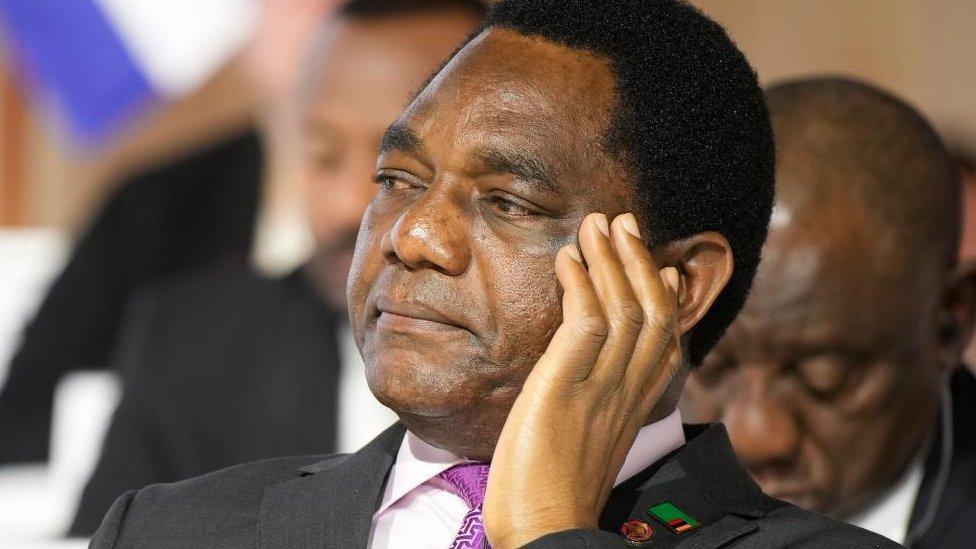Zambian president sacks top judges who ruled in favour of his rival
3 min read
Critics accuse President Hakainde Hichilema of overreaching in his actions against judges

Critics accuse President Hakainde Hichilema of overreaching in his actions against judges
Zambia’s President Hakainde Hichilema has removed three prominent judges from the Constitutional Court, escalating accusations of political interference in the judiciary. This action follows the judges’ previous rulings against Hichilema in significant election-related cases.
The judges—Justice Annie Sitali, Justice Mungeni Mulenga, and Justice Palan Mulonda—were initially suspended over allegations of judicial misconduct. Their controversial decisions included dismissing Hichilema’s challenge to the election victory of former President Edgar Lungu in 2016 and permitting Lungu to run in the 2021 elections despite his previous two terms in office.
The dismissal was announced in a presidential statement, which indicated that it was effective immediately and based on a recommendation from the Judicial Complaints Commission (JCC). The statement emphasized that the removal was carried out under the powers granted to the president by the Zambian constitution.
The judges have not publicly responded to their dismissal. Their removal followed a court ruling that denied their application for a review of the JCC’s recommendation regarding their suspension. The JCC had conducted an investigation into allegations of gross misconduct based on a complaint from a private citizen, Moses Kalonde.
Reactions to the judges’ dismissal have been mixed. Political tensions are intensifying in Zambia as the country approaches the 2026 elections, where Hichilema and Lungu are expected to face each other for a fourth time. Laura Miti, a social and political commentator, noted the division among Zambians regarding the president’s actions.
“Some view this as a legal yet self-serving move by the president, while others support him,” Miti stated. She acknowledged that although the judges’ past actions may warrant scrutiny, the timing of their removal appears retaliatory, raising serious concerns about the independence of the judiciary.
Conversely, Makebi Zulu, who represented Lungu in the 2016 election case, described the dismissal as an “illegality” and a clear case of executive overreach that undermines judicial independence. He asserted, “No judge should face disciplinary action for fulfilling their judicial duties.”
According to Zambia’s constitution, all judges are appointed by the president based on JCC recommendations, which must then be approved by the National Assembly. This appointment process has drawn criticism from some analysts who argue that it compromises judicial independence. Political analyst Sishuwa Sishuwa commented that as long as the executive branch controls judicial appointments, the risk of incompetent or unqualified judges will persist.
He emphasized the need for a “structured and broad-minded approach” to judicial appointments, rather than the current method of targeted changes that can lead to instability and lack of confidence in the judicial system.
As the political landscape in Zambia continues to evolve, the implications of this judicial shake-up may reverberate well into the future, particularly as the nation prepares for a pivotal election cycle. The actions taken by President Hichilema may be viewed as a significant test of Zambia’s commitment to democratic principles and the rule of law. Observers will be closely monitoring how this situation develops and its impact on the judiciary’s independence and public trust in the legal system.